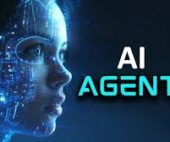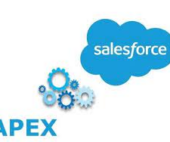Enhance Business Communication with Accurate Email Verification in Salesforce
Email is the backbone of business communication, powering client interactions, customer engagement, and marketing campaigns. However, inaccurate email data can hurt your marketing efforts, damage your sender reputation, and lead to wasted resources. Verifying email addresses in Salesforce ensures data accuracy, improves deliverability, and strengthens overall communication efficiency. This guide explores how to easily verify email addresses in Salesforce, including a seamless solution—VTM (Verify the Email)—designed to simplify the process. How to Verify User Email Addresses in Salesforce Salesforce provides a built-in feature for verifying user email addresses when setting up accounts. This ensures that the email is active and functional. Here’s how: 1️⃣ Access Salesforce Setup – Navigate to the Setup Menu in Salesforce.2️⃣ Find the User Profile – Go to the Administration page, select Users, and choose the specific user account that needs verification.3️⃣ Trigger the Verification Email – When an email address is updated, Salesforce sends an automated verification email to the user.4️⃣ Confirm the Email – The user must click the link in the email to complete verification. While this method ensures the validity of user emails, it’s limited to Salesforce accounts. What about verifying emails for leads, contacts, and accounts? That’s where VTM comes in. Why Email Verification Matters in Salesforce Before diving into how VTM enhances verification, let’s explore why email validation is crucial: ✅ Improved Deliverability – Invalid email addresses cause bounces, harming your sender reputation and lowering future email success rates. ✅ Data Accuracy – Keeping Salesforce records clean ensures your team engages with valid contacts, reducing inefficiencies and missed opportunities. ✅ Compliance & Trust – Verifying emails helps maintain compliance with GDPR, CAN-SPAM, and other regulations, protecting your business from legal risks. ✅ Cost Efficiency – Many email marketing tools charge per email sent. Verifying addresses prevents wasted spending on invalid contacts. Given these challenges, VTM offers a scalable, automated solution for seamless email verification directly within Salesforce. How VTM Streamlines Email Verification in Salesforce Verify Email Addresses Without Sending Emails VTM checks the existence, domain status, and active mailbox availability of an email address—without sending actual emails. This prevents spam filter triggers and ensures verification happens discreetly. Batch Verification for Large Datasets Managing a large database? VTM enables bulk verification, allowing users to validate thousands of email addresses at once. This ensures your Salesforce data stays accurate and reliable, improving email campaign success rates. Real-Time Email Validation VTM performs instant email verification when new addresses are added to Salesforce. This proactive approach helps sales and marketing teams avoid bad data before campaigns even begin. Ensure Compliance with Email Regulations VTM helps businesses meet email security and compliance standards, ensuring verified addresses align with GDPR, CAN-SPAM, and other email regulations. This protects your organization from potential penalties while maintaining customer trust. Boost Marketing ROI Invalid email addresses can cause even the best-planned campaigns to fail. By verifying emails with VTM, businesses increase open rates, click-through rates, and overall campaign ROI. Seamless Salesforce Integration VTM operates entirely within Salesforce, offering a user-friendly experience with no need to switch between platforms. Its intuitive interface makes email verification simple and efficient for all users. Take Control of Your Email Data in Salesforce Ensuring email accuracy is key to business success. Whether you’re looking to improve deliverability, reduce bounces, or enhance campaign efficiency, VTM provides a powerful solution to keep your Salesforce data clean and reliable. Like Related Posts Salesforce OEM AppExchange Expanding its reach beyond CRM, Salesforce.com has launched a new service called AppExchange OEM Edition, aimed at non-CRM service providers. Read more The Salesforce Story In Marc Benioff’s own words How did salesforce.com grow from a start up in a rented apartment into the world’s Read more Salesforce Jigsaw Salesforce.com, a prominent figure in cloud computing, has finalized a deal to acquire Jigsaw, a wiki-style business contact database, for Read more Service Cloud with AI-Driven Intelligence Salesforce Enhances Service Cloud with AI-Driven Intelligence Engine Data science and analytics are rapidly becoming standard features in enterprise applications, Read more


















